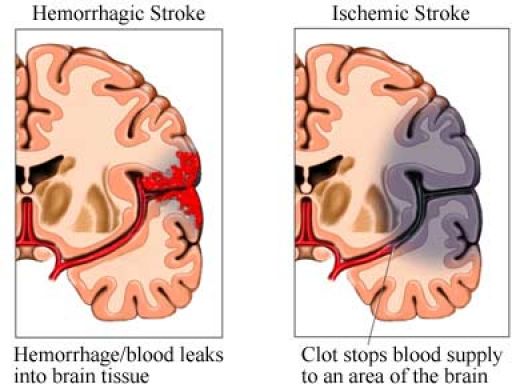I recently received a sad news that one of my relatives died suddenly without a warning sign. Just like that, he was gone. In pictures he recently posted, he seemed fit as a fiddle. I saw some tinge of sleep deprivation or lack of good sleep in the current and casual photo shoots, but I could be wrong. He was young, seemed full of life and maybe had great ambition.
It was a puzzle to me and everyone that knew him of his passing at 39 years old, with no serious known illness. He did not make it alive to the hospital. He was pronounced dead on arrival and diagnosed that he suffered a mild stroke.
I was told that he went to bed with a full stomach. Just right after he ate a big dinner, he went to sleep, physically tired from a day’s work. In the middle of the night, his wife awaken from his loud snore. She tried to wake him up but he did not respond. They rushed him to the hospital but it was too late.
So many things came to my mind of what might have happened to him from the time he went to bed and got into a deeper sleep.
- He slept with a full stomach

According to Livestrong.com –
When you go to sleep or go into a reclining position, gravity no longer pulls everything in your abdomen straight down. If you have a full stomach, this can cause acid reflux, potentially resulting in long-term damage to your esophagus. If you have digestive problems when you lie down after going to sleep, you should talk to your doctor and consider making changes to your lifestyle.
Stomach Digestion 
When you eat food, your stomach churns to help mix the food with gastric acid and break it down. The top of your stomach is lined with a ring of muscle known as the lower esophageal sphincter. This muscle prevents the contents of your stomach from traveling up into your esophagus. However, when partially digested food presses up against the lower esophageal sphincter, it can relax. When you have a full stomach and lie down, more food can press against the sphincter, allowing the contents of your stomach to re-enter your esophagus.
Stomach Acid Problems
Lying down on a full stomach can cause significant discomfort, but it can also lead to serious health problems. If the lining of your esophagus is regularly burned by stomach acid, your esophageal cells will gradually change, resulting in a phenomenon known as Barrett’s esophagus. This increases your risk of developing esophageal cancer. Chronic acid reflux can also cause your esophagus to narrow or develop open sores.
- He was snoring loud enough to disrupt his wife’s sleep

According to MayoClinic.Org
Normal snoring, called primary snoring, is harmless to the snorer although annoying to anyone who sleeps with that person.
Sleep deprivation. Not getting enough sleep can lead to further throat relaxation.

Risk factors that may contribute to snoring include:
- Being a man. Men are more likely to snore or have sleep apnea than are women.
- Being overweight. People who are overweight or obese are more likely to snore or have obstructive sleep apnea.
- Having a narrow airway. Some people may have a long soft palate, or large tonsils or adenoids, which can narrow the airway and cause snoring.
- Drinking alcohol. Alcohol relaxes your throat muscles, increasing the risk of snoring.
- Having nasal problems. If you have a structural defect in your airway, such as a deviated septum, or your nose is chronically congested, your risk of snoring is greater.
- Having a family history of snoring or obstructive sleep apnea
Habitual snoring may be more than just a nuisance. Aside from disrupting a bed partner’s sleep, if snoring is caused by obstructive sleep apnea, you may be at risk for other complications, including:
- Daytime sleepiness
- Frequent frustration or anger
- Difficulty concentrating
- A greater risk of high blood pressure, heart conditions and stroke
- An increased risk of behavior problems, such as aggression or learning problems, in children with obstructive sleep apnea
- An increased risk of motor vehicle accidents due to lack of sleep
I was told that the deceased was not a smoker nor was an alcohol drinker and mostly was not doing drugs. Narrowing it down, he was a man, may have a narrow airway, had a nasal problems or might have a family history of obstructive sleep apnea, which is a serious condition if not treated. His diagnose was he had a mild stroke. Obstructive sleep apnea, that he might unknowingly was suffering from, had block his airway during deep sleep and he was unable to breathe which caused a mild stroke as the air to the brain was constricted which caused the mild stroke. 

I don’t know the distance from their home to the hospital, but if he got medical help sooner than later, he would still be alive as it was a mild stroke. Our neighbor, who suffered from mild stroke, is well and back on her feet. Our emergency hospitals here, which we have quite a few, are about ten to maybe fifteen minutes away. She’s a lot older than my nephew and thank God, she survived. Hers was mostly stress related. 
Whether these were the causes of my nephew’s untimely death, it was very sad that he was gone. I feel for his mother and siblings, especially his wife left with five young kids to take care of.
There are no permanent things in life. Life is so precious and being knowledgeable about how our body works is a must.

